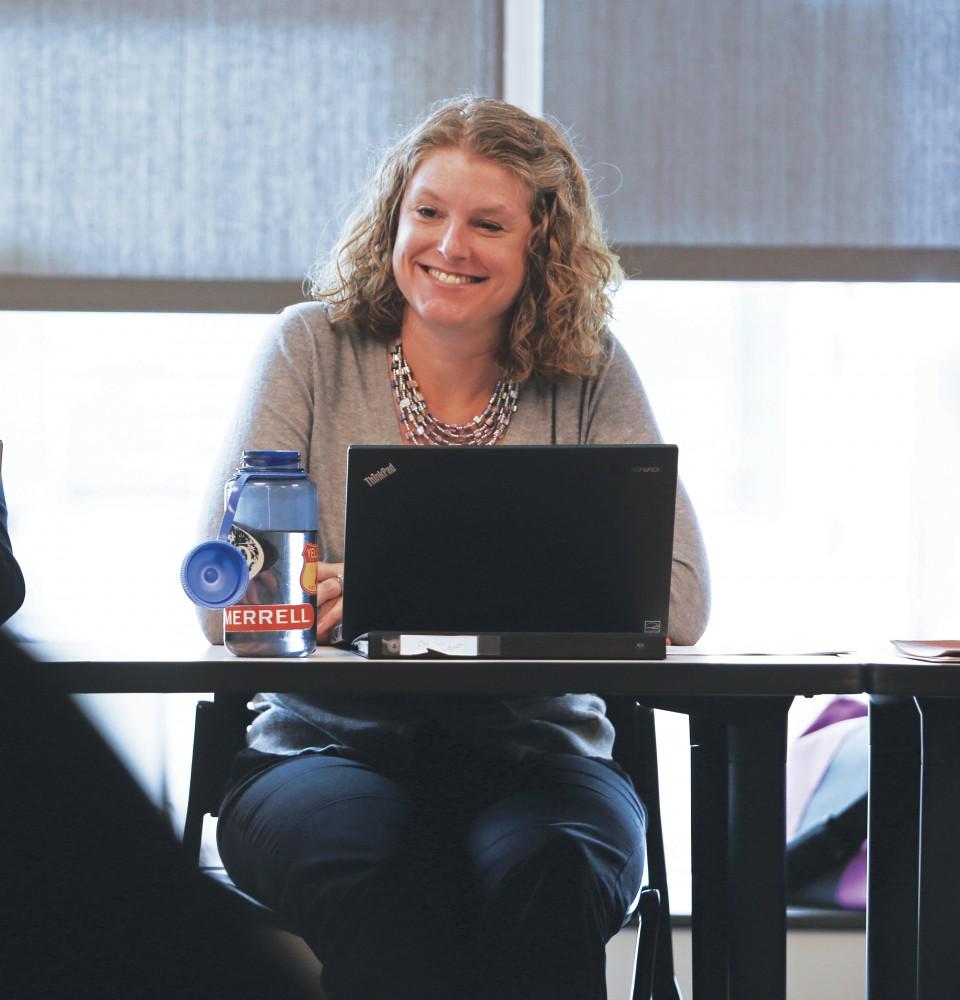University Senate approves affiliate faculty council

GVL/Kevin Sielaff Dr. Tonya Parker; associate professor and clinical coordinator. (ECS 2014)
Oct 1, 2015
Affiliate professors may not be able to be on track for tenure, but now, Grand Valley State University affiliate professors will have a support system behind them.
The University Academic Senate approved the creation of the Affiliate Faculty Advisory Council during its first meeting of the fall semester last week.
Tonya Parker, associate movement science professor, brought the recommendation before the UAS. Parker served as the chair of the task force that looked to create a universal council for the 170 affiliate faculty currently on campus.
She defined affiliates as full-time employees with continuing contracts that are not fixed for any specific amount of time. She added that they are “professional teachers.” This differs from regular faculty, who are on track for tenure.
“There’s an awful lot of affiliates,” Parker said. “There didn’t used to be, but we’ve done a lot of hiring. Right now we don’t have a consistent way to get their voices heard.”
Although the Executive Committee of the Senate began discussions last year, Parker said it has been a two-year process. This summer, affiliate and regular faculty met to finalize the plans.
“The group decided they wanted university-wide recognition and a committee to deal with these issues of advocacy, retention, support and increased visibility,” Parker said. “We are talking about affiliates as unified body in the university.”
Deana Weibel, anthropology professor and chair, attended these summer meetings to help with some of the writing and administrative work. Weibel said she got involved because the anthropology department values their affiliates and the work they do.
“Because GVSU highly values teaching, I think it’s important that tenure-track faculty on university committees and the University Academic Senate have a way of learning directly from affiliate faculty and benefitting from their wide experience,” she said.
The anthropology department is just one of the areas within the College of Liberal Arts and Sciences that uses affiliate faculty. Parker said CLAS has 100 affiliates, which is more than any other college within GVSU. This large number led CLAS to create an affiliate council about two years ago.
Each college has different expectations and uses affiliates at different levels, but Parker said the Affiliate Faculty Advisory Council is important for all colleges.
“It will be a way for affiliate faculty to have a role in their governance,” she said. “Assuming the provost supports this, the colleges will have to develop a process to elect affiliate faculty.”
Parker said this process may not be ready for elections in the winter semester, so the council might not emerge until the following year.
Already, the CLAS version of the affiliate council has served its members well.
“CLAS has benefitted from having such a council to consult on a regular basis,” said Frederick Antczak, dean of CLAS. “Affiliates teach a considerable number of our 100 and 200 level courses, and they can tell us a lot about effective pedagogy, engaging curriculum and just the conditions of instruction in these courses, which are so crucial to better retention and swifter time to graduation.”
Antczak said he supports the council because he wants to help improve affiliates’ conditions on campus and “empower affiliates to be more effective in their work with students.”






















